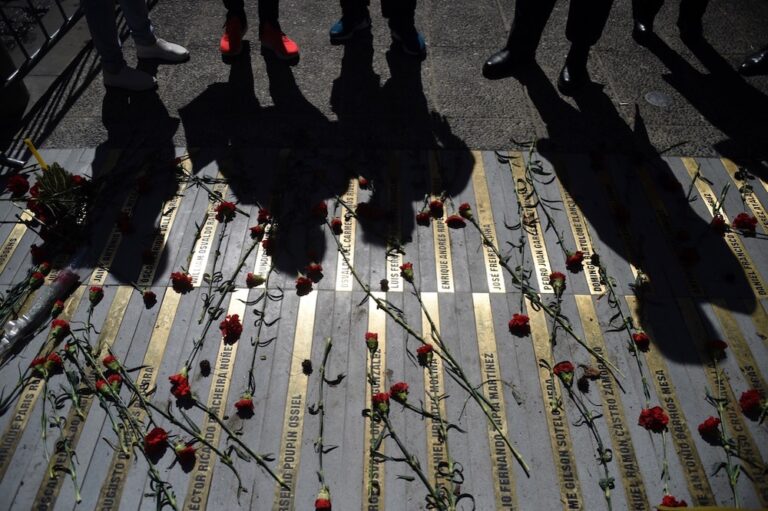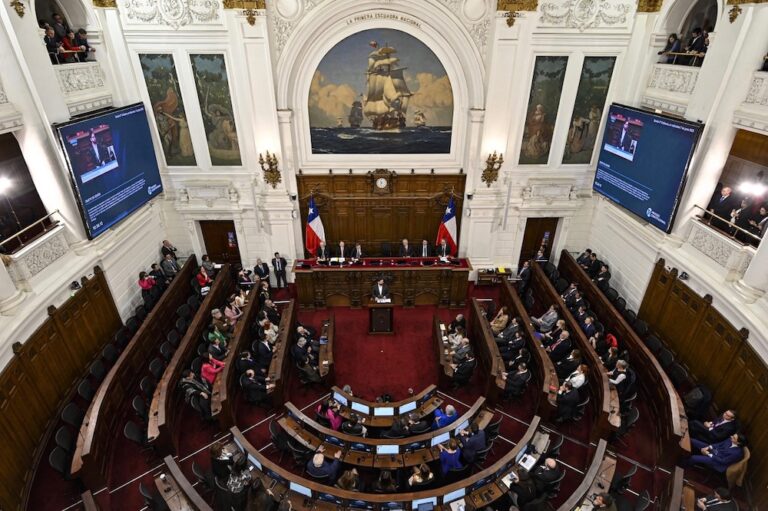(RSF/IFEX) – The following is an 11 December 2006 RSF press release: A TRIBUTE TO 68 MEDIA WORKERS MURDERED OR DISAPPEARED UNDER GEN. PINOCHET Reporters Without Borders paid homage today to the 68 media personnel – including editors, reporters, photographers, cameramen and printing press workers – who were among the 4,000 people murdered or disappeared […]
(RSF/IFEX) – The following is an 11 December 2006 RSF press release:
A TRIBUTE TO 68 MEDIA WORKERS MURDERED OR DISAPPEARED UNDER GEN. PINOCHET
Reporters Without Borders paid homage today to the 68 media personnel – including editors, reporters, photographers, cameramen and printing press workers – who were among the 4,000 people murdered or disappeared during Gen. Augusto Pinochet’s dictatorship. Pinochet’s death yesterday prevents justice being fully rendered to his victims and their families but does not mean these crimes must go unpunished.
“Like many others, we regret that Gen. Pinochet died without ever being tried in court,” the press freedom organisation said. “His death rightly arouses a deep frustration, which can only be assuaged if the Chilean judicial authorities resolutely undertake to try those responsible for the human rights violations that took place between 1973 and 1986.”
Reporters Without Borders added: “We pay tribute to the victims of this bloody regime, which was outrageously condoned by western governments and supported by the United States. Our thoughts go out especially to those 68 media workers and their families, for whose sake the dictator’s death must not result in impunity.”
A total of 21 reporters and editors, 20 photographers, cameramen and technicians, and 27 printing press workers were killed or disappeared under Gen. Pinochet’s dictatorship, from the day of his coup on 11 September 1973 until 1986 (four years before the return to civilian rule). Most were arrested, tortured and murdered in the weeks following the 1973 coup, in atrocities covered by a 1978 law in which the junta amnestied all crimes committed until that moment.
On 21 March 2006, 13 military personnel were indicted for their role in the “Caravan of Death,” a unit that travelled around eliminating the junta’s opponents in October and November of 1973. The “Caravan of Death” executed at least 75 political prisoners, including Radio Loa director Carlos Berger Guralnik on 19 October 1973.
Other journalists were killed in the 1980s, in government crackdowns on the waves of protests that preceded the 1988 referendum, the prelude to the end of the dictatorship. Freelance photographer Rodrigo Rojas died on 2 July 1986 after being set on fire by an army patrol. The soldier directly responsible, Lt. Pedro Fernández Dittus, received a prison sentence.
José Carrasco Tapia, the editor of now defunct weekly Análisis, was shot dead by an automatic firearm along with three other government opponents on 8 September 1986, the day after a failed attempt to ambush and assassinate Gen. Pinochet. Fourteen former political police officers were charged on 26 October 2005 but their superior, Gen. Humberto Gordon, died in 2000 of cancer, while benefiting from a conditional release.
Carrasco was the last journalist to be killed under the dictatorship. A memorial to the journalists killed or disappeared under the Pinochet regime was inaugurated on 8 September 1999 on the spot where Carrasco’s body was found.


